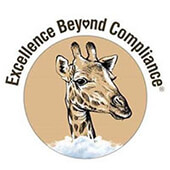Academy Contributors
Getting Better All the Time:
Training Ourselves to Better Serve Animals
 By James F. Gesualdi and Patricia A. Milito By James F. Gesualdi and Patricia A. Milito
To keep ahead, each one of us, no matter what our task, must search for new and better methods—for even that which we now do well must be done better tomorrow.—James F. Bell
It's all to do with the training: you can do a lot if you're properly trained.
—Queen Elizabeth II
Training is among the most important actions you and your organization can take to empower yourselves to create a better world for animals, and the people like us who are serving their interests daily. According to Wikipedia:
"Training" is teaching, or developing in oneself or others, any skills and knowledge that relate to specific useful competencies. Training has specific goals of improving one's capability, capacity, productivity, and performance.
Training is a process of continuous improvement that is best accomplished through sustained effort. When you think you have learned and trained to the best of your ability, then continue to learn and train some more. There is always something more to learn and apply in our work with animals and each other.
Something More to Improve Upon
Share your ideas with others in your organization and, as a whole, develop those experiences into new practices. Develop or refine training programs (and leverage resources like San Diego Zoo Global Academy) to best suit your aims. Run through mock training sessions to ensure that ideas, policies, procedures, and plans are working well for your organization—but most importantly, so that things work better for the animals in your care. After all, the animals are your single most important responsibility, and they deserve nothing less.
As noted in Excellence Beyond Compliance: Enhancing Animal Welfare Through the Constructive Use of the Animal Welfare Act, which was crafted to be a transformative yet practical field guide:
It is essential that comprehensive training be provided upon hire or organizational commitment to Excellence Beyond Compliance. Concurrent with training, all zoological organization staff should be instructed and reminded about the overriding importance of animal welfare, the AWA, and Excellence Beyond Compliance.
A comprehensive training program includes individual efforts and organizational-driven initial and general training (especially as to regulatory compliance and animal welfare), ongoing, supplemental (possibly varied or reinvented by need, or areas of directed focus for improvement), specialized (such as emergency preparedness and response), and outside professional development activities. Training can also be utilized as a constructive means to help move forward following a challenging experience or situation. Keeping good records of such efforts is important to measure and evaluate growth and progress, as well as to demonstrate competence and knowledge to regulatory agencies and other third parties.
Training is a worthwhile investment of personal and organizational time, attention, energy, and resources. When directed to practical application, training is extraordinarily valuable. It fosters excellence.
Successful, sustained training leads to bigger and better things. Individuals and organizations can benefit from training, but the real winners are the animals entrusted to our care.
You can work really hard, but if you're not training in the right way, you're not going to improve and get to the level that you want to.—Michael Chang
Please email me at jfg@excellencebeyondcompliance.com to share the good you are doing (as only you can), or with any comments or questions on this column or suggestions for future ones. For upcoming workshops and sessions, contact: info@excellencebeyondcompliance.com.
© 2017 James F. Gesualdi, P.C. The opinions expressed herein are solely those of the author. This is not, nor should it be construed as, legal advice.
Upcoming Teleseminar
Train yourself and your organization to develop greater practical understanding of the Animal Welfare Act regulations, USDA inspections, and ways to use the AWA to better serve animals, by joining us at 2 p.m. EST on February 2 for Ask Animal Care with Elizabeth Goldentyer, DVM, Eastern Regional Director; and Robert M. Gibbens, DVM, Western Regional Director, USDA, APHIS, Animal Care. Register and submit questions to info@excellencebeyondcompliance.com.
 Talking Training: Talking Training:
Do Any of Us Ever Get Too Much Encouragement?
By Gary Priest
This month, we introduce a new column by Gary Priest, curator of Animal Care Training at San Diego Zoo Global. Dr. Rob Jones, The Aquarium Vet, will also be back next month with his column, "Something Fishy Is Going On."
This is the first installment of a new monthly feature of the Academy Newsletter. It is my plan to use this space to write directly to supervisors/managers, curators, and directors. My purpose is to offer you insights: ideas, tools, and strategies that will help you achieve success with your staff, and your professional development and training program. If you are struggling with this one, you are not alone. Staff training is a huge undertaking, and it is difficult for many reasons that we will explore in this and future columns.
I am personally encouraged that in five short years, the San Diego Zoo Global Academy has become the online training platform for the vast majority of accredited zoos and aquariums in the United States and Canada. I look forward to encouraging collection managers, who may be struggling with resistance presented to them by their always-too-busy staff. In fact, the focus for this first column is encouragement.
I can think of nothing more important or necessary in the area of professional development than the sincere use of encouragement of your staff. The word "encourage" simply means "to fill with courage"—so, why should we need to encourage staff to take advantage of online training that the organization is providing and paying them to take? There are multiple reasons behind resistance to change, but in my experience, the two chief reasons are fear of failure and lack of confidence. Both challenges require determination and courage to overcome.
Does anyone ever get too much encouragement? Do you remember the last time someone inspired you with confidence and gave you hope or courage when you were frightened or struggling with a challenge? Of course you remember. So do I. Unfortunately, this is because the intentional expression of genuine, heartfelt encouragement is so rare.
Honestly, as a manager, when was the last time a superior filled you with courage? It isn't because it is costly; encouragement can take place in a moment. It isn't because encouragement isn't appreciated; I have never known an encouraging word to not be readily accepted by the recipient. I believe that there are two primary reasons we fail to fill others with courage. First, we don't often experience the exhilaration of an encouraging word; and second, because encouragement is rare, it simply doesn't occur to us to pass courage on to others who desperately need it.
I have observed that once an employee is promoted to the management team, instances of being encouraged by a superior mostly slow to a near stop—and they seem to decrease, the higher you climb the ladder. Superiors are busy people, and your courage in facing challenges is expected. The unintended consequence of failing to encourage a protégé is the risk that they will learn the same behavior, and model it with their staff. So, let me challenge all the managers reading this column to break the cycle and begin to recognize that change is scary, and it often takes courage to meet it head on.
Support your staff in this way, and watch them—and your professional development and training program—excel.
For more information regarding this column, please contact Gary Priest at gpriest@sandiegozoo.org.
|